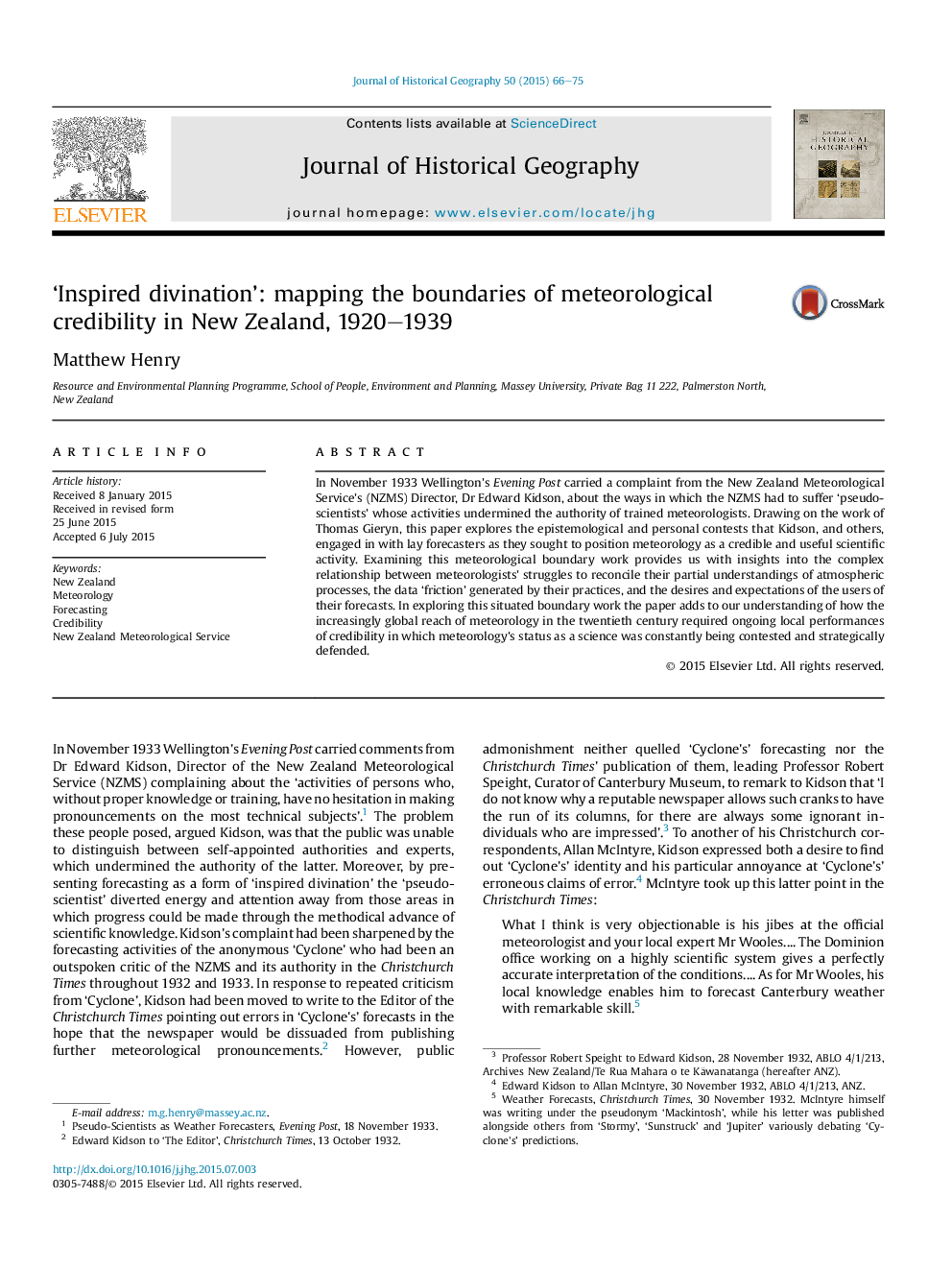| Article ID | Journal | Published Year | Pages | File Type |
|---|---|---|---|---|
| 7447528 | Journal of Historical Geography | 2015 | 10 Pages |
Abstract
In November 1933 Wellington's Evening Post carried a complaint from the New Zealand Meteorological Service's (NZMS) Director, Dr Edward Kidson, about the ways in which the NZMS had to suffer 'pseudo-scientists' whose activities undermined the authority of trained meteorologists. Drawing on the work of Thomas Gieryn, this paper explores the epistemological and personal contests that Kidson, and others, engaged in with lay forecasters as they sought to position meteorology as a credible and useful scientific activity. Examining this meteorological boundary work provides us with insights into the complex relationship between meteorologists' struggles to reconcile their partial understandings of atmospheric processes, the data 'friction' generated by their practices, and the desires and expectations of the users of their forecasts. In exploring this situated boundary work the paper adds to our understanding of how the increasingly global reach of meteorology in the twentieth century required ongoing local performances of credibility in which meteorology's status as a science was constantly being contested and strategically defended.
Related Topics
Social Sciences and Humanities
Arts and Humanities
History
Authors
Matthew Henry,
